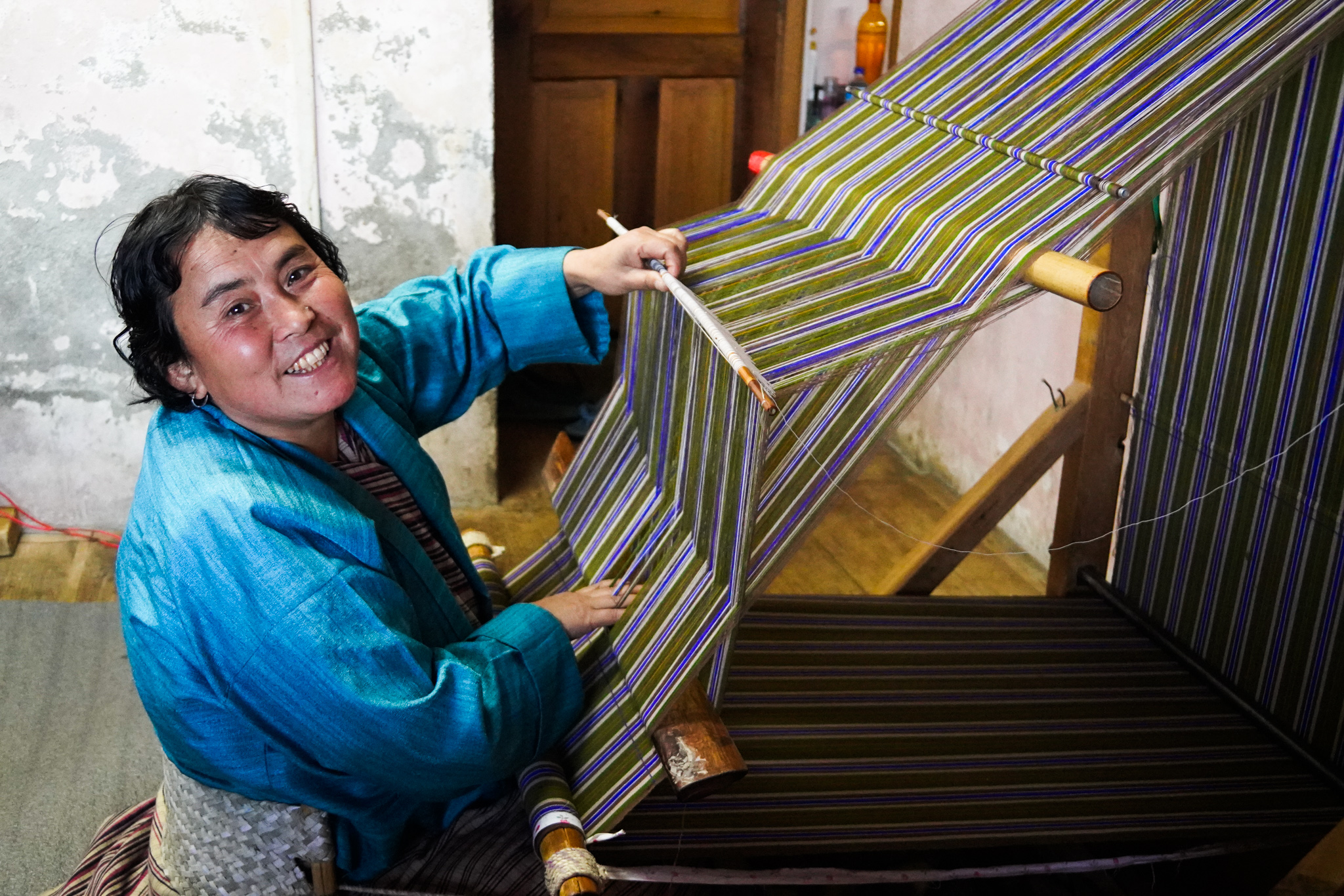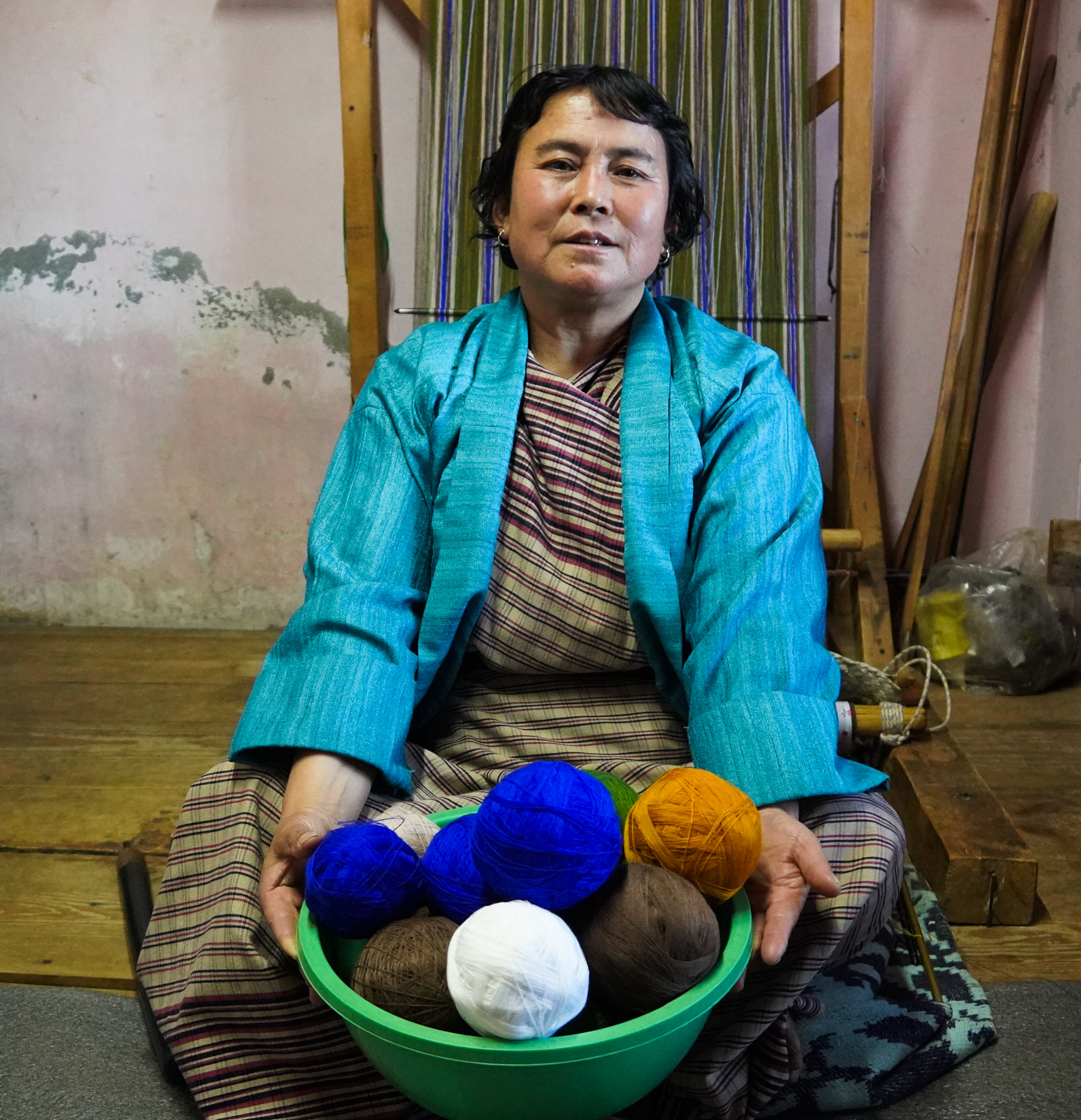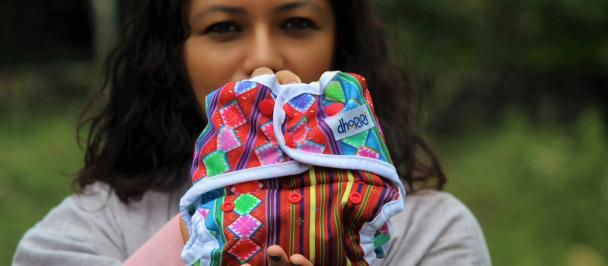Cheni weaving kira (women's national dress) at her home in Mothithang
Cheni Wangmo, 52, who lives in Thimphu with her family makes a living as a weaver. In 2021, the mother of three joined as a member of SABAH (SAARC Business Association of Home-Based Workers) and her weaving business has flourished since. “We received trainings on how to weave table runners, shawls, and mufflers besides kira and gho (men’s national dress),” Cheni said.
“What’s been most helpful is the easy access to market. SABAH helped sell our products, so we had a consistent stream of income. This enabled me to support my husband with our home and children’s education expenses.”
But that was before COVID-19 happened. “Tourists were our main customers. With borders closed, we lost market and weaving materials became scarce in the local market. Our income took a hit,” she said.
Cheni’s situation mirrors the plight of other SABAH members. The CSO has 1,670 registered members across 18 districts. The members include weavers, tailors and food producers.
In May 2021, UNDP partnered with SABAH on skills building and economic empowerment of women home-based workers to help cushion COVID-19 impact. And Cheni is one of the beneficiaries of this parternship.
A total of 25 women home-based workers from across the country have been engaged in financial literacy awareness and training program, helping them understand the importance of saving for uncertain times like these.
A hundred other weavers in seven districts were provided with various support that helped them buy raw materials and learn to weave new products.
In Thimphu, 20 women home-based tailors received trainings in making beds for pets and mats using waste materials. They also learned how to make face masks, purse and bags.
And 15 food handlers were trained in food production and packaging at a food factory in Gelephu, equipping them with skills to make new food products as well as marketing skills.
“Our business is slowly picking up thanks to this support,” said Cheni. “I hope we will be able to bounce back to the pre-pandemic state soon.”
UNDP’s support to SABAH is a part of support towards national COVID-19 response and recovery efforts targeting vulnerable women and girls whose lives have been disproportionately impacted by the pandemic.
###

 Locations
Locations


